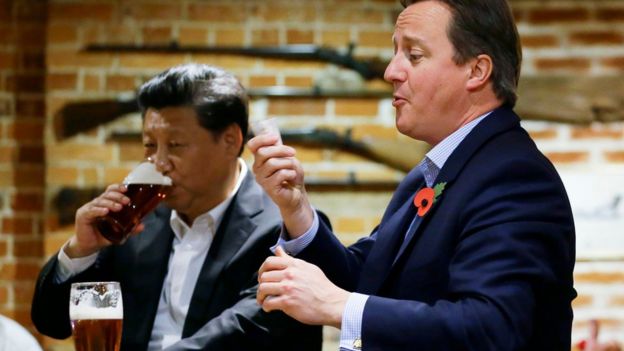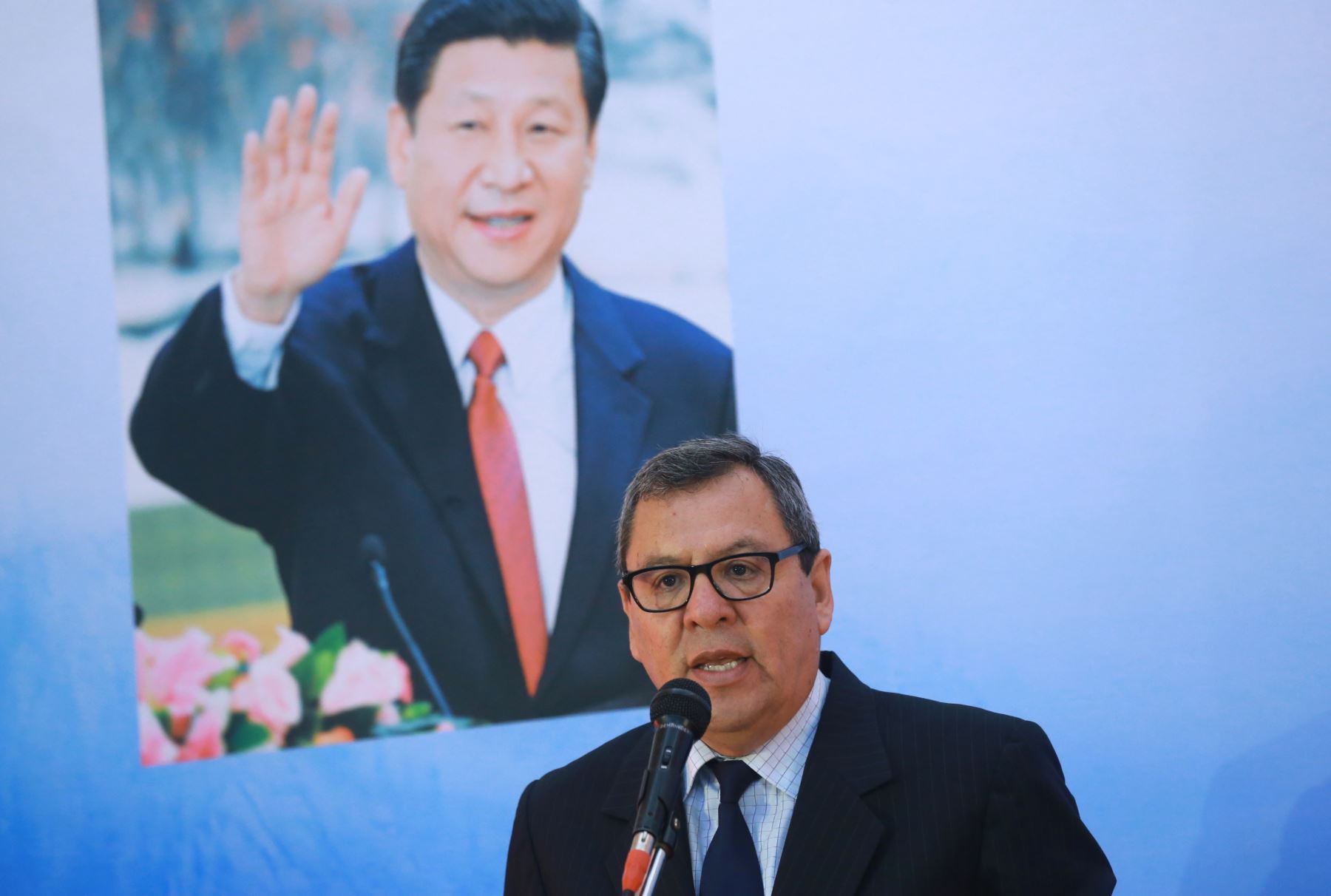China’s ‘Magic Weapons’: Influence Operations Subverting Foreign Governments
Report says Beijing sharply increases overseas efforts to sway governments under Xi Jinping



China under supreme leader Xi Jinping is stepping up coordinated intelligence operations aimed at influencing foreign governments into backing Beijing's anti-democratic goals, according to a new study.
Chinese influence operations involve multiple government and Chinese Communist Party (CCP) intelligence organizations that seek to buy, guide, or coerce foreign governments into advancing its agenda, says the study written by New Zealand professor Anne-Marie Brady, a fellow at the Wilson Center.
"Even more than his predecessors, Xi Jinping has led a massive expansion of efforts to shape foreign public opinion in order to influence the decision-making of foreign governments and societies," the report says.
"China's foreign influence activities have the potential to undermine the sovereignty and integrity of the political system of targeted states," the report warns.
Using New Zealand as a case study, the report reveals that Xi recently urged overseas Chinese nationals and ethnic Chinese residents to infiltrate foreign governments.
In New Zealand, several ethnic Chinese politicians have been elected to the parliament of the South Pacific nation, which is a key intelligence ally of the United States.
For example, New Zealand parliamentarian Jian Yang acknowledged recently that he concealed his past relationship with the People's Liberation Army intelligence unit and membership in the Chinese Communist Party.
"New Zealand, like many other states in the world, is becoming saturated with the PRC's political influence activities, and due to its pattern of engagement with China and its natural assets, it may even be experiencing more political influence activities than most," the report says.
Chinese foreign influence operations in New Zealand raise security concerns here about China gaining accessing U.S. secrets. The government there is part of the British-American intelligence alliance known as Five Eyes—that involves the sharing of secrets among the spy services of the United States, Britain, Canada, Australia, and New Zealand.
"New Zealand is valuable to China, as well to other states such as Russia, as a soft underbelly to access Five Eyes intelligence," the report said.
"New Zealand is also a potential strategic site for the PLA navy's Southern Hemisphere future naval facilities and a future Beidou-2 [navigation satellite system] ground station—there are already several of these in Antarctica."
Over the past several decades, China has focused on sowing divisions between the government in Wellington and the U.S., its ally. New Zealand has adopted increasingly anti-American policies, beginning in the 1980s when the nation refused to permit nuclear-powered or nuclear-armed warships from making port calls as part of an anti-nuclear policy.
China has targeted New Zealand's 200,000 ethnic Chinese, part of the country's population of 4.5 million people.
The report on Beijing influence operations was published as Democrats and most news outlets in the United States remain focused on Russian influence operations, specifically activities during the 2016 presidential election.
By contrast, Chinese influence operations in the United States have received little or no scrutiny from Congress or most news media.
The Chinese activities are based on what Beijing calls "united front" work—strategic influence operations first used in the 1940s by communists who eventually seized power in China.
Xi in September 2014 highlighted the importance of united front work in supporting influence activities around the world, calling them the Party's "magic weapons" in pursuit of making China the dominant world power.
Concerned over the growing sub rosa intelligence operations in nearby Australia, the government there had drafted new laws designed to curb Chinese political and economic influence activities, including a ban on all foreign political donations.
In the United States, China has been engaged in widespread influence operations primarily through the hiring of former government officials to lobby on its behalf. Other methods involve coercing American companies operating in China into influencing the U.S. government in support of China's policies.
During the 1990s, Chinese agents were caught by the FBI funding the reelection campaign of President Bill Clinton.
However, for the past 20 years, the FBI, which is responsible for countering foreign influence operations has produced few arrests or prosecutions related to Beijing influence operations.
Dissident Chinese businessman Guo Wengui revealed recently that Chinese companies are used often by the Ministry of State Security (MSS), the civilian spy service, to buy off American politicians and organizations in order to promote China's foreign and economic policies.
The influence operations are carried out by Party units identified in the report as the United Front Work Department, the Central Propaganda Department, the International Liaison Department, the All-China Federation of Overseas Chinese, and the Chinese People's Association for Friendship with Foreign Countries.
All are key players in covert Chinese foreign and defense affairs.
"United front activities incorporate working with groups and prominent individuals in society; information management and propaganda; and it has also frequently been a means of facilitating espionage," the report says.
A key ploy of Chinese influence activities is creating networks of "friends of China" overseas who are called on to influence host governments and media.
Chinese military intelligence, known as the PLA Second Department, also has worked closely in the past with the International Liaison Department and United Front Work Department in backing revolutionaries in Southeast Asia and spying.
United Front operatives frequently operate under cover as Chinese diplomats who target foreign politicians, business people, and journalists.
Front groups include Chinese community associations and student groups along with organizations funded by China engaged in Chinese language, media, and cultural activities.
Another key influence tool is the numerous Beijing-funded Confucius Institutes that are located on many U.S. and foreign college campuses.
"CCP united front officials and their agents try to develop relationships with foreign and overseas Chinese personages (the more influential the better) to influence, subvert, and if necessary, bypass the policies of their governments and promote the interests of the CCP globally," the report says.
The Party operatives attempt to guide the activities of front groups, oversea agents, and supporters by appealing to nationalist sentiment, such as urging support for the Chinese motherland, the Chinese race, and the Chinese ethnic population within their countries.
"The goal of successful overseas Chinese work is to get the community to proactively and even better, spontaneously, engage in activities which enhance China's foreign policy agenda," the report said.
China has been less successful in targeting overseas Chinese groups opposed to the communist regime, including pro-democracy dissidents, the Buddhist-oriented group Falun Gong, those promoting Taiwan independence, independent Chinese religious groups, and Tibetans and Uighurs seeking independence.
However, all those groups are major targets of infiltration by Party and intelligence agents who seek to divide or subvert the groups.
Recruiting ethnic Chinese as spies is also part of the influence operations, led by the MSS, Ministry of Public Security, PLA Joint Staff Headquarters' Third Department, Xinhua News Service, the United Front Work Department, and International Liaison Department.
The report said a former Chinese spy revealed in 2014 that the PLA Third Department utilizes a network of some 200,000 agents around the world.
Guo, the dissident Chinese businessman, has stated that China dispatched between 25,000 and 40,000 agents to the United States, and increased the aggressiveness of their operations beginning in 2012.
"Political influence activities in the Xi era draw heavily on the approaches set in the Mao years and the policies of Deng, Jiang, and Hu, but take them to a new level of ambition," the report said. "This reflects both the growing confidence of the Xi government in China's international influence, as well as the high stakes strategy he is pursuing to maintain his regime through boosting economic growth and tightening control of information."
The 57-page report, "Magic Weapons: China's political influence activities under Xi Jinping," was presented Sept. 18 at a conference on the corrosion of democracy under China's international influence.
In New Zealand, the report identifies three ethnic Chinese politicians who it says maintain ties to Chinese united front groups and the Chinese embassy, including Yang, Raymond Huo, and Kenneth Wang, the descendent of a Communist Party revolutionary who was a member of parliament from 2004 to 2005.
The report said Yang "worked for fifteen years in China's military intelligence sector," information that was concealed on his New Zealand permanent residency application and job applications in New Zealand.
"The PLA would not have allowed anyone with Yang Jian's military intelligence background to go overseas to study—unless they had official permission," the report said.
As a member of parliament, Yang has been a "central figure promoting and helping to shape the New Zealand National government's China strategy and been responsible for their engagement with the New Zealand Chinese community," the report said.
Yang said earlier this month he is not a spy and has never been a spy but acknowledged being a part of the Chinese military.
Peter Mattis, an expert on Chinese intelligence said Yang's statements at a press conference raised more questions than it answered.
"He claimed to have taught at Luoyang, but he told Chinese media in 2013 that he studied at the school run by China's signals intelligence agency and earned a master's degree," Mattis said.
"New Zealand illustrates the challenge of dealing with Chinese influence operations once Beijing affects the political core," he said. "The potential damage is unknown. Addressing the questions that need answering requires a much higher degree of political will than it might otherwise."
Mattis said whenever Chinese influence activities are a focus of security concerns accusations of racism and ignorance of China are raised.
"The Yang case is no different. Brady's paper shows the problem is neither racism, nor ignorance, but how the Chinese Communist Party operates abroad," he said.
Huo, a member of the New Zealand parliament from 2008 to 2014, and again in 2017, has worked closely with Chinese united front groups, the report said.
Huo has maintained close contacts with China's Zhi Gong Party, one of eight minor political parties under the control of the United Front Work Department.
No comments:
Post a Comment
Comments always welcome!